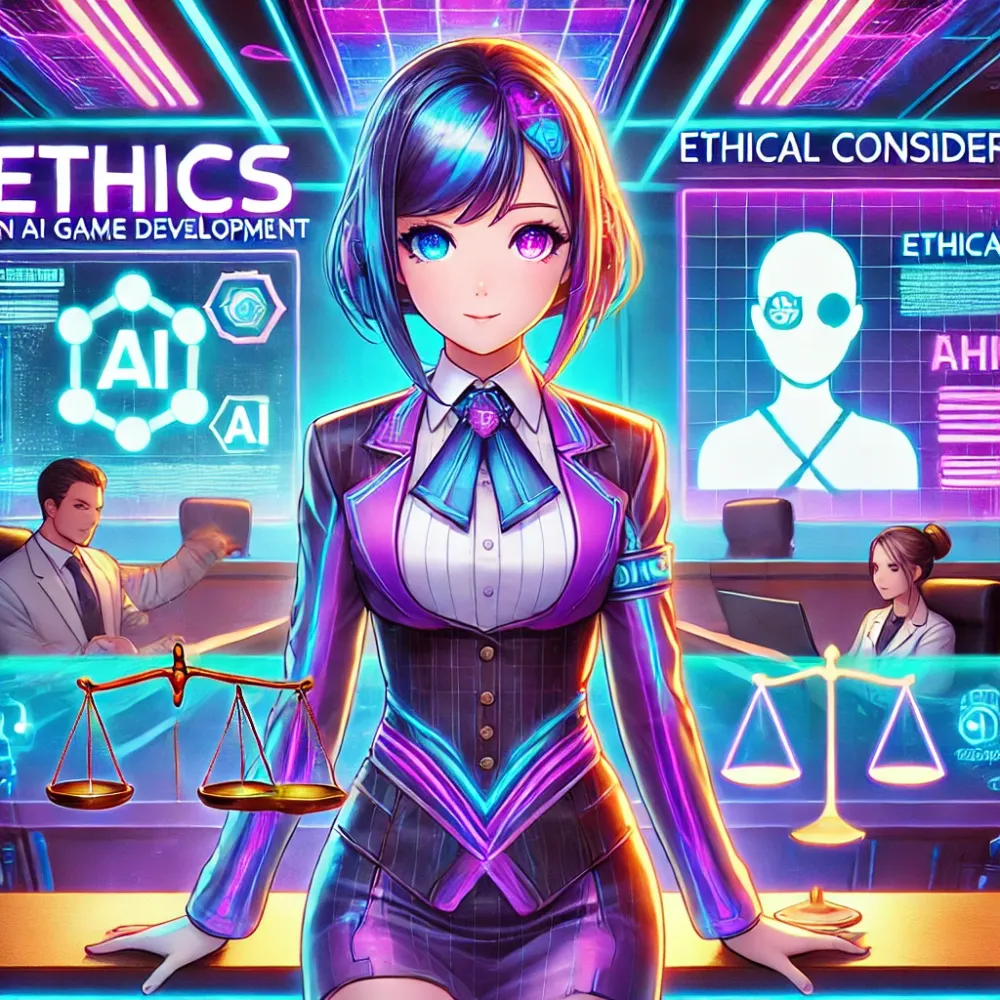Ethical considerations when using AI in indie game development
As AI technologies become increasingly integral to game development, indie developers are leveraging these tools to create engaging, personalized experiences. However, the use of AI also introduces ethical responsibilities that developers must address to ensure fair, safe, and inclusive gaming experiences. Key areas of ethical concern include player privacy, transparency, algorithmic fairness, and player well-being, all of which are critical for maintaining trust and supporting a positive player community (ar5iv).
1. Player privacy and data protection
AI in games relies heavily on player data to personalize experiences and enhance gameplay. However, this data collection must be done transparently and ethically. Developers should implement robust data security measures, obtain informed consent, and offer clear explanations of how data is used. Ethical guidelines emphasize the need for transparency in data practices, aligning with laws like GDPR, which requires companies to secure sensitive player information and disclose data collection practices (Techopedia).
The Inclusive AI project emphasizes that safeguarding player privacy is crucial to maintaining trust within the gaming community and upholding ethical standards (The Inclusive AI).
2. Algorithmic bias and fairness
Bias in AI algorithms can inadvertently lead to unfair gaming experiences, reinforcing stereotypes or marginalizing certain player groups. AI-driven systems can perpetuate these biases in character representation, dialogue, and even gameplay advantages if they are trained on unrepresentative data. For instance, an AI-driven NPC may reinforce stereotypes or alter game difficulty based on biased datasets. Tools and techniques for bias detection are essential to create diverse and inclusive gaming experiences.
3. Transparency and explainable AI
Transparency is critical in fostering trust between players and AI systems. Explainable AI (XAI) offers players insights into how AI-driven features operate, promoting a clearer understanding of how AI impacts gameplay and allowing players to make more informed choices. According to resources from the AI Now Institute, promoting transparency about AI algorithms, particularly in multiplayer or competitive settings, empowers players and builds trust in the gaming environment (Taylor Wessing).
Developers can enhance transparency by sharing how AI-driven matchmaking or gameplay adjustments function, encouraging a fair and engaging experience.
4. Player Well-Being and addiction
AI can enhance gameplay by adapting to player behavior, but developers must be cautious of inadvertently creating addictive gaming loops. Techniques like dynamic difficulty adjustment can improve engagement, yet they can also lead to compulsive gameplay if not carefully implemented. Studies highlight the importance of balance in AI usage, suggesting features like break reminders and in-game notifications to help prevent excessive gaming.
Ethical AI use prioritizes player well-being, balancing engagement with health-conscious game design.
5. Accountability and industry standards
As AI in gaming evolves, so does the need for accountability in AI’s effects on player safety and experience. Regulatory guidelines, such as the proposed EU AI Act, are pushing for transparency and safety in AI applications, which will likely impact the gaming industry. Regular audits, active monitoring of AI systems, and quick responses to any harm caused by AI algorithms are essential to reduce risks and uphold high standards of ethical game development (LowTech AI).
AI offers immense potential to enhance indie game development but requires careful, ethical use to support player trust and inclusivity. By prioritizing data privacy, fairness, transparency, and player well-being, indie developers can build responsible gaming experiences that resonate positively with players. With AI’s rapid evolution, ongoing dialogue and regulatory alignment will be essential to ensure the industry develops responsibly, balancing innovation with ethical considerations.




